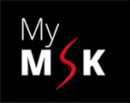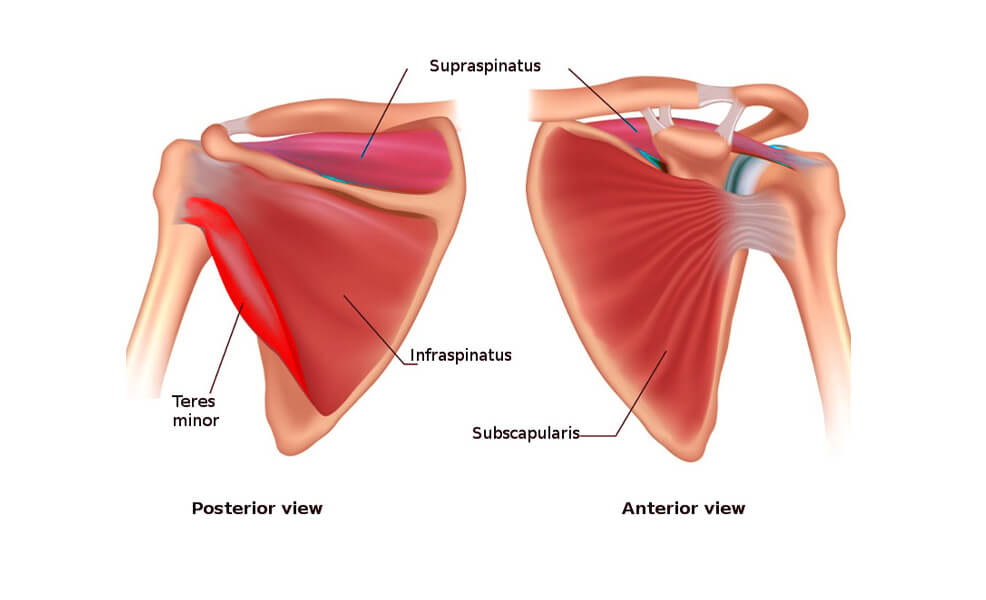What You Should Do If You Suspect That You’ve Torn Your Rotator Cuff
If you have a torn rotator cuff, treatment delivered by a qualified practitioner is very important. Your “rotator cuff” is a small group of four muscles, the supraspinatus, subscapularis, infraspinatus and teres minor.
Essentially they work to hold the head of your humerus bone within the socket of your shoulder joint and as such are involved in the movements of your shoulder and upper arm. The shoulder is the most mobile joint in the body. This means that in the event of injury it is very difficult to rest the rotator cuff muscles while the injury heals. This in turn means that rotator cuff injuries rarely heal without some kind of intervention.
The most vulnerable muscle of the group is the supraspinatus. This little muscle is responsible for lifting your arm from side to side before your deltoid takes over and when doing heavy lifting or executing a sudden pulling movement it is possible for this muscle to tear. Even a small tear in the supraspinatus can cause considerable discomfort and limit movement. Another common Rotator Cuff injury, known as “shoulder impingement syndrome” is caused by the supraspinatus muscle rubbing against the underside of the bone called the Acromion. Over time such rubbing can be the cause of tendinitis, tendinopathy, calcification and degeneration which may in time also result in a tear.
Imagine the supraspinatus muscle as a rope being scraped against a rock which causes the fibres of the rope to wear away with the passage of time. That is a fair analogy of what happens to your supraspinatus in these circumstances as your muscle fibres are worn away by the edge of bone. Aside from the obvious discomfort that this causes, your body responds to the damage by releasing substances which encourage swelling in the surrounding area which cause further discomfort and limit movement.
So how will you know if you have torn your rotator cuff?
Typically, if you have any kind of rotator cuff injury you will find that it will be uncomfortable to perform simple tasks such as reaching up to comb your hair or reach behind your back. You may also find that lying on the injured shoulder is also a source of discomfort which causes difficulty in sleeping.
Weakness in the arm can also be a symptom that is suggestive of an injured rotator cuff. Treatment can be as simple as a routine of mild stretching exercises or avoiding certain movements. In more severe cases a cortisone injection may be used to help alleviate pain by reducing swelling. This Cortisone injection is carefully injected under ultrasound guidance into the subacromial bursa. Some very serious cases of Rotator cuff muscle injury may require surgery.
Given that rotator cuff injuries are generally caused by the “wear and tear” everyday life inflicts on us they tend to be more common amongst the older population who also – on average at least – generally take longer to heal from this kind of muscular damage. But young or old, our advice is always the same for anyone who thinks they may have a torn rotator cuff; treatment from a qualified medical practitioner should be sought at the earliest opportunity because rotator cuff damage rarely gets better by itself and left untreated it can often become more severe.
The likelihood is that simple physiotherapy will be all that you need, but if that proves ineffective a more advanced intervention may be required. MyMSK Clinic can help with all kinds of rotator cuff treatment. Our experienced clinicians will carefully assess your injury and determine the best course of treatment. If you do require a private cortisone injection Manchester is a good place to be – our team of clinicians will work with you to determine exactly the right cortisone injection for you.
Cortisone injections – sometimes referred to as “corticosteroid injections” or “steroid injections”, although they are completely unrelated to the anabolic steroids which are sometimes misused in sports – are a well-established and proven anti-inflammatory treatment. Although there are several brand names available in the United Kingdom there are two main varieties of cortisone injection, one containing the active ingredient Triamcinolone Acetonide (also known as Kenalog and another containing the active ingredient Methylprednisolone Acetate (also known as depo-medrone)
If you come to us for a private Cortisone injection in Manchester at MyMSK Clinic your dedicated clinician will be able to advise as to the appropriate Cortisone injection to use based upon the joint or area of tissue that is to be treated. A Cortisone injection works as an effective torn rotator cuff treatment because it reduces the swelling that surrounds a tear by reducing the production of chemicals that cause inflammation. Inflammation can often be a cause of tissue damage so reducing inflammation can be key to reducing such damage. In addition to reducing swelling Cortisone injections can also help to decrease the sensation of pain by stopping the release of chemicals across nerves and inhibiting the activation of local nociceptors, the pain sensors within the joints and nerves of the body that send pain information to the brain. If they stop telling your brain that your shoulder hurts, it will hurt less. Delivering a cortisone injection to help ease your shoulder pain or joint pain is simple and straightforward. You will be seated in a comfortable position which gives our clinicians easy access to the affected shoulder. Some patients may experience a measure of discomfort during the injection process, but the subsequent pain relief benefits do make this drawback worth it.
Most people do not experience any side effects after receiving a cortisone injection. Occasionally there can be some initial pain and perhaps a little bruising at the injection site, but this will generally fade rapidly and can be easily alleviated with an ice-pack, or regular painkillers such as paracetamol. Around 15% of women may experience facial flushing which often gets better in 24 hours. This kind of rotator cuff treatment begins to work at the site of the injection immediately, so if you have a cortisone injection in your shoulder to ease the pain of a torn rotator cuff you should begin to experience relief from your discomfort very quickly. The beneficial effects of a cortisone injection in the subacromial bursa of the shoulder, for example, will typically last from several weeks to several months, making the treatment extremely useful not just for treating rotator cuff injury but also many other chronic conditions which cause inflammation and pain such as arthritis.
With this pain relief the patient is then able to rehab and strengthen the rotator cuff muscles with specific exercises.
It is important to remember that while a Cortisone injection is a highly effective torn rotator cuff treatment, it is not a cure. A cortisone injection should certainly provide relief from pain and inflammation for an extended period of many weeks but further treatments may be required periodically. Medical opinion is that, assuming that there is a clinical need, up to three Cortisone injections in any twelve month period is fine, but this frequency should not be exceeded. So if you feel that you could benefit from Torn Rotator Cuff Treatment or are experiencing any kind of shoulder, joint or other tissue pain come to us for a consultation. A cortisone injection may well prove very helpful in managing your discomfort, reducing inflammation and improving your range of movement. If you think you have torn your rotator cuff and would benefit from exploring what a private cortisone injection in Manchester can do for you the skilled clinicians at MyMSK Clinic are here to help.





